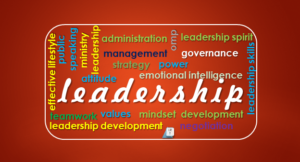 It is important to know that loyalty is more important than satisfaction.
It is important to know that loyalty is more important than satisfaction.
The loyalty of customers and clients is more critical than their satisfaction. Patient loyalty holds greater importance than patient satisfaction.
Understanding that loyalty surpasses satisfaction isn’t difficult, is it, leaders? Satisfaction is good, but loyalty is exceptional. Is there still any confusion among the leaders?
Focus more on customer loyalty than on customer satisfaction. Indeed, the greatest organizations in the world do not primarily measure customer satisfaction; instead, they are relentlessly focused on customer loyalty. Why? Because loyalty—not satisfaction—drives repeat business.
In the context of patient satisfaction, loyal patients typically rate their experience a 5 out of 5, while “satisfied” patients might rate it a 3 or higher. In a well-known essay titled “The Loyalty Effect” published in the Harvard Business Review by Reichheld, it was revealed that customers who give a rating of 4 are six times more likely to defect compared to those who rate a 5.
Patient satisfaction surveys can be misleading. If nothing goes wrong and nothing memorable happens, patients might simply check off “3” or “4.” Additionally, if a hospital achieves “98% patient satisfaction,” what motivation do staff members have to improve? They may become complacent while patients leave with a mediocre experience. Disney aims higher; their metric is the percentage of customers who rate their experience as “very satisfied” (5 out of 5).
For patients to be considered “very satisfied,” something memorable, unexpected, or worthy of storytelling must occur.
Of course, we’re not discussing a hospital where individuals come in sick, hurt, afraid, or stressed, nor are we talking about the hospitality industry (like hotels, restaurants, or supermarkets) where people often feel anxious and unsure. We are considering scenarios where patients or customers have a choice in where to go. How can hospitals create positive, memorable experiences?
Research conducted by some medical professionals on unsolicited positive feedback from patients revealed a common theme: compassion. Patients remember compassion. Human beings tend to remember compassion, especially when they are in need. Compassion can serve as a key differentiator for your hospital or hospitality establishment. However, it cannot be scripted or mandated; it must be genuine. (Imagine a husband saying, “Wife, I love you because I have to.” The wife would recognize that he is insincere.)
The same principle applies to compassion. While it should be valued and measured, it cannot simply be a requirement.
Please let me know if you’d like more comprehensive solutions and guidance.
SOLUTIONS
If you’re interested in improving customer retention and customer relationship management, Dr. Mike Ihezuo can help reposition your workforce. He collaborates with Proctles Consulting to offer assistance. Contact him at https://www.proctles.com/.





